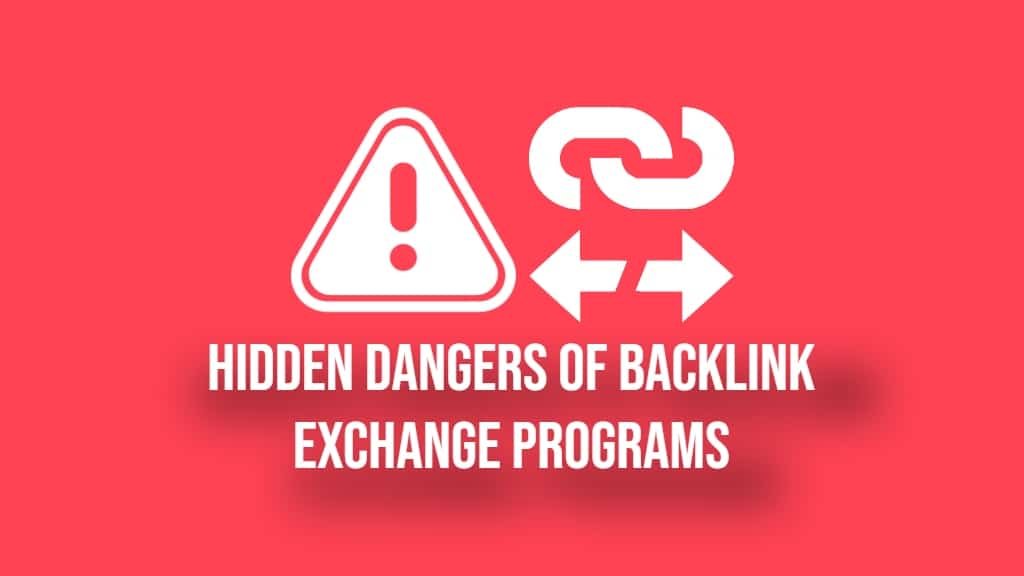Backlink exchange programs were once popular among website owners and digital marketers as a way to improve search engine rankings. However, over time, search engines like Google have become more sophisticated, and these programs are now considered detrimental to a website’s SEO. In this article, we will explore the reasons why backlink exchange programs can harm your website and the potential consequences of participating in them.
Google’s Algorithm Updates:
Google’s algorithms have evolved to better understand the quality and relevance of backlinks. Google’s Penguin update, for instance, focuses on penalizing websites that engage in manipulative link building practices, such as backlink exchange programs. Websites found to be involved in such schemes can suffer from reduced rankings or even be removed from search results altogether.
Low-Quality Backlinks:
Backlink exchange programs often result in low-quality, irrelevant backlinks from unrelated websites. These low-quality links can negatively impact your website’s credibility and search engine rankings. Google and other search engines prioritize high-quality, relevant backlinks that provide value to users, not link exchanges that only serve to manipulate rankings.
Risk of Penalization:
Participating in backlink exchange programs puts your website at risk of being flagged and penalized by search engines. Google’s Webmaster Guidelines explicitly state that participating in link schemes designed to manipulate PageRank is a violation of their guidelines. Websites found in violation can face ranking penalties or even be removed from the index.
Loss of Trust and Credibility:
Engaging in backlink exchange programs can damage your website’s credibility and trustworthiness in the eyes of both search engines and users. A website linked to low-quality or unrelated sites may be perceived as untrustworthy or spammy, discouraging potential visitors from engaging with your content.
Time and Resource Inefficiency:
Backlink exchange programs can be time-consuming and resource-intensive, with limited long-term benefits. Instead of focusing on these short-term tactics, it is more effective to invest time and resources into creating high-quality content and building genuine, relevant backlinks through legitimate methods like guest posting, content marketing, and relationship building.
Missing Out on Organic Growth:
By participating in backlink exchange programs, you may miss out on opportunities for organic growth and genuine connections with other websites in your niche. Building relationships with industry influencers, bloggers, and other relevant websites can lead to natural, high-quality backlinks that benefit your website’s SEO without the risks associated with link exchanges.
Dilution of Link Equity:
Backlink exchange programs can dilute your website’s link equity, as search engines distribute the value of a link among all the links on a page. When your website is linked to numerous low-quality or unrelated sites, the value of your backlinks is diminished, negatively impacting your website’s overall link equity and search engine rankings.
Conclusion:
Backlink exchange programs, once seen as a quick and easy way to improve search engine rankings, are now a risky and harmful practice for your website’s SEO. With the potential for penalization, low-quality backlinks, loss of trust and credibility, time and resource inefficiency, hindered organic growth, and diluted link equity, it’s crucial to avoid these programs and focus on ethical, sustainable link-building strategies. By creating valuable, high-quality content and fostering genuine relationships within your niche, you can build a strong backlink profile that benefits your website’s SEO and online reputation in the long run.




